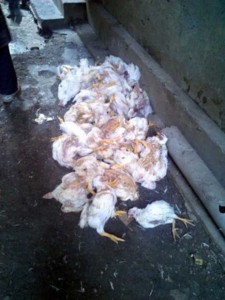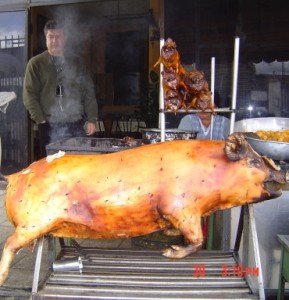Kyle Iboshi, Senior Investigative Reporter at KGW TV reports that USDA inspection reports that were acquired through a Freedom of Information Act request (below, exactly as shown) detail multiple violations at a Kelso, WA Foster Farms processing plant in 2014. Foster Farms’ chicken was linked to over 630 cases of salmonellosis between 2011 and 2014.
The reports, dated from March to September 2014, show 40 separate violations of food safety rules at the Kelso plant during the six month period.
“There were multiple times when food safety problems were identified and then not addressed,” said Christopher Waldrop, director of the Food Policy Institute at the Consumer Federation of America in Washington D.C.
Reports show on July 9, 2014 an inspector found fecal material on a raw chicken.
“The fecal material was found on the inside left hip/thigh area consisting of dark green creamy material,” wrote the government inspector.
“You shouldn’t have fecal matter on chickens,” said Waldrop. “That presents a risk to consumers because they could get sick if they consume that chicken or other chickens that were processed at the same time.”
“Foster Farms is committed to the highest levels of food safety and regrets any illness that may have previously been associated with any of its products,” wrote the company in a statement to KGW. The company declined requests for an on-camera interview.
“We really need to know what is happening in these plants,” said Waldrop.









